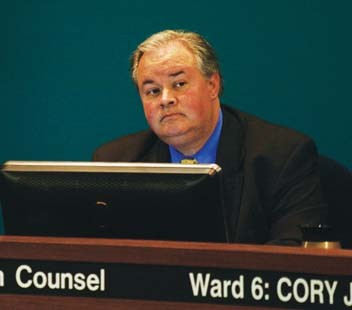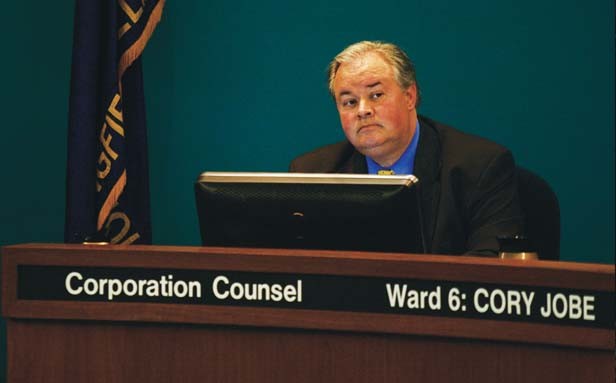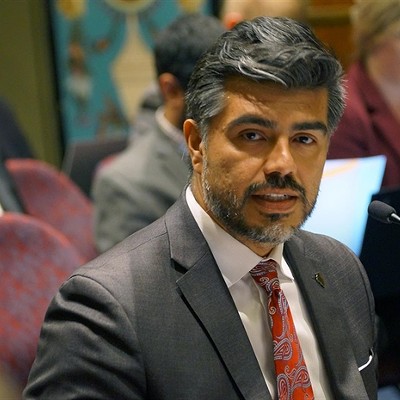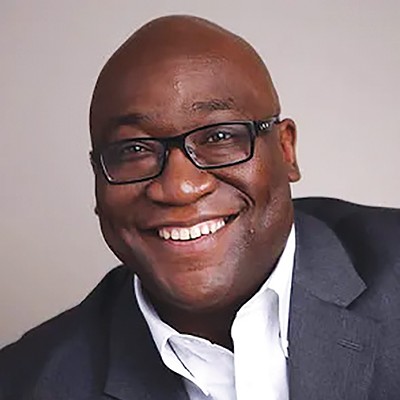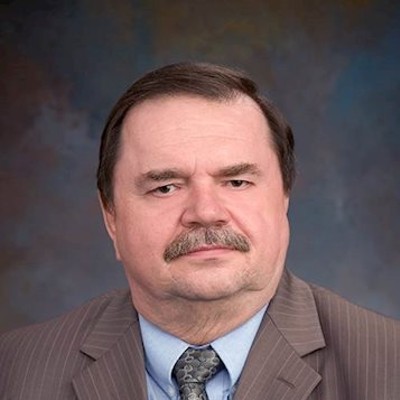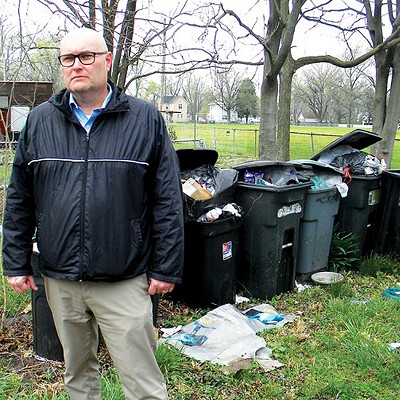There are more questions than answers in the wake of an arbitrator’s decision rescinding the termination of a City Water, Light and Power employee who cut down a relative’s tree on city time last March, then confronted a citizen who complained.
Arbitrator Edwin H. Benn in his Dec. 5 order did not explain why he reduced Matthew Winters’ termination to a 30-day suspension without pay, nor did he say why he reduced a three-day suspension given to William Lewis, another CWLP lineman who helped cut the tree, to a written warning. Benn, however, didn’t budge on a 10-day suspension given to James Martin, a foreman, for allowing his crew to cut down a tree on property belonging to Winters’ brother.
Benn reached his conclusion without benefit of testimony from Eric Reiss, the citizen who saw the tree cutting, took photographs, complained and was subsequently confronted by Winters, who stood accused of wrongful use of city equipment, dishonesty and intimidating an whistleblower. In an email to aldermen, city attorney Mark Cullen said that the basis for reduced punishment was an admission by Martin that he approved the illicit work and was neither encouraged nor influenced by Winters, whose brother stood to gain.
In short, a version of the good-German defense worked: The boss took the blame and no one got fired. That the arbitrator never heard from the complaining witness wasn’t a factor in the outcome, Cullen says.
“It was clear to me his decision was not at all based on lack of testimony by Mr. Reiss,” Cullen said. “I would have liked to have seen the termination upheld. I think we got every opportunity to put our case out there.”
Regardless of whether Martin was influenced by Winters while chainsaws roared, Cullen can’t explain how Benn evaluated the accusation that the lineman confronted Reiss after learning a complaint had been filed. Reiss says that Winters told him that he worked on Mayor Mike Houston’s campaign and that nothing would happen to him. In his decision, the arbitrator wrote that Winters can be fired if he harasses a citizen in the future.
“I was intimidated,” Reiss says. “I would say on a one-to-ten, I was at a seven – I was saying to myself ‘This is going to hurt.’”
In his message to aldermen, Cullen said that Reiss didn’t show up for a Dec. 5 hearing. Although he said that Reiss’ testimony wouldn’t have changed the outcome, Cullen nonetheless did not discount what the whistleblower would have told the arbitrator.
“I think that Mr. Reiss’ information that he gave to the city was very important,” Cullen said. “I wish that we had had the opportunity to put that information in front of the arbitrator.”
In fact, the city did have that opportunity.
Reiss says that he sat outside a hearing room in city hall from 8:30 a.m. until 4:30 p.m. during a Nov. 6 hearing on the matter. He said Cullen’s staff told him that he wouldn’t testify right away because the union representing accused employees was presenting its case first. Normally, the employer, who has the burden of proof, would go first. Furthermore, testimony from witnesses is routinely taken out of turn during legal proceedings that don’t involve juries.
Cullen said the union asked to present its case first and the city agreed during the hearing that was not open to the public.
“We felt that it was an advantage because we got to hear their case,” Cullen said.
Cullen gave the same answer when asked why the city didn’t ask the arbitrator to hear Reiss’ testimony during the first day of the hearing while he sat outside the closed proceeding.
“We didn’t make the request because we wanted to hear the union’s side of the case first,” Cullen said.
After the first day of testimony, Reiss was told to return to City Hall on Nov. 26 to testify. He did, but the hearing was canceled because a lawyer for the city had a medical emergency.
“They said ‘Are you available to come back?’” Reiss recalls. “I said ‘Of course.’”
At that point, Reiss and Cullen disagree. Cullen says that his staff told Reiss that the next hearing would be Dec. 5; Reiss said that he was told the date was tentative and the city would call to confirm. Reiss said someone from the city called him the day before, but he didn’t find out that he was due at City Hall until 10 a.m. the day of the hearing, an hour after its scheduled start. The city had called or texted him several times that morning, but he didn’t check his phone.
Reiss said that he called Cullen’s staff and said he could be at City Hall within an hour, but a paralegal told him that the hearing officer had everything needed and his testimony wasn’t required.
“I said ‘Excuse me?’” Reiss says.
Reiss was under subpoena, and the city could have gotten proceedings delayed so that a court could issue an order to enforce the subpoena. Cullen said his staff chose not to do that out of fear that Reiss would become a hostile witness.
“I am always very reluctant to enforce a subpoena against a witness that I am trying to utilize to promote our case out of concern that enforcing something through the judicial system might make someone an antagonistic witness,” Cullen said.
That’s ridiculous, Reiss says. He says that he received subpoenas before the Nov. 6 hearing and the one that was canceled on Nov. 26, but never received written notice of the Dec. 5 hearing.
“They knew how much I wanted to testify,” Reiss said.
Ward 2 Ald. Gail Simpson said that she’s frustrated with the city’s legal department and even more frustrated with the arbitrator.
“I’m frustrated that we’ve got an individual who basically thumbed his nose at the ratepayers: I’m going to do work on city time of a personal nature and I’m pretty much going to get away with it,” Simpson said. “This decision says to CWLP employees that they can do whatever the hell they want and nothing’s going to happen.”
Fearing that the city wouldn’t take action, Reiss last spring contacted several aldermen, including Simpson, who says that she can’t imagine him turning into a hostile witness. She noted that Reiss even addressed the city council about the matter.
“This man made a real effort to reach out to myself and other aldermen,” Simpson said. “Why would he back off from that?”
Contact Bruce Rushton at [email protected].

